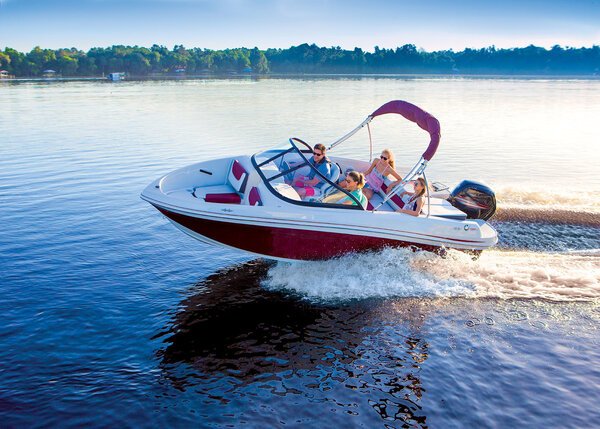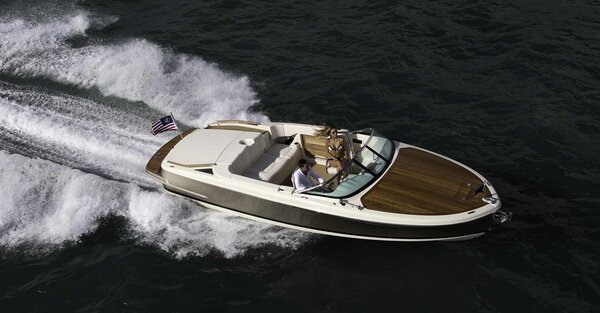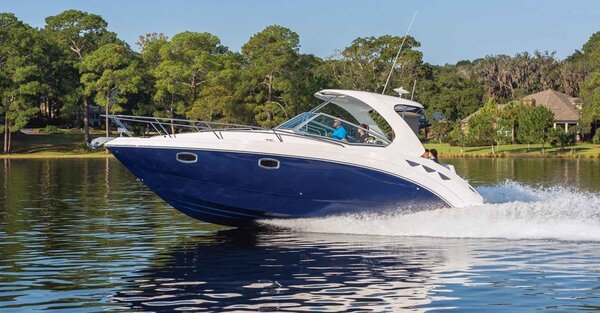Electric boats, also known as electric-powered boats, use electric motors for propulsion, with a wide range of models and sizes to suit various boating activities and lifestyles. Offering numerous environmental and operational benefits—they are emissions-free, quiet, and cost-effective to operate—electric boats are growing in popularity.
If you want a boat you can use for a variety of on-water adventures—and you want to balance your fun on the water while protecting the planet, an electric boat is an ideal choice.
Moreover, your options for going electric on the water are expanding. With the global shift towards electric power, boat manufacturers are adding new electric boats, electric motors, and hybrid models to their lineup every day.

Explore Boat Brands
Electric Boats
Use our Boat Loan Calculator to get a better idea of your own budget.
Looking for a different boat?
Activities with Electric Boats
GREAT FOR Fishing • Day Cruising
Electrically-powered boats offer remarkable versatility due to the extensive range of available models, including center consoles, fishing boats, sport and tow boats, pontoons, sailboats, deck boats, cabin cruisers—even high-performance boats and luxury yachts.
Depending on the model you choose, you can enjoy a wide range of on-water activities in an electric boat, including:
- Fishing—both fresh and saltwater
- Towable watersports
- Day cruising
- Sailing
Electric boats are ideal for cruising, relaxing, watching wildlife, and fishing because of their quiet operation. If you’re an angler, the smooth ride and lack of engine noise are a real advantage—allowing a stealthy approach that can make it easier to catch your quarry.
Using electric propulsion may also give you access to boating destinations that are protected from the noise and pollution of fossil-fuel-powered boats.
Benefits of Electric Boats
Electric boats offer many benefits, ranging from ease of use to lower operating costs to quiet operation.
Zero Emissions: Electric boats have zero emissions, meaning they do not contribute to air or water pollution.
Low Noise and Vibration Levels: Electric boats offer low noise and vibration levels, making them ideal for activities like fishing, wildlife observation, and relaxation.
High Performance and Speed: Modern electric motors are not only environmentally friendly and quiet, but also offer high performance and strong propulsion—in fact, top speeds can match gas-powered vessels.
More Efficient: Another advantage is that electric motors are significantly more efficient than conventional engines, with instant torque for fast starts and quick acceleration followed by consistent speeds.
Cost Efficient: While electric boats may have a higher upfront cost, they are less costly to operate over time than traditional boats. With minimal fuel costs and fewer maintenance requirements, owning an electric boat can save you thousands of dollars in the long run. Furthermore, many states offer tax credits and other incentives when you purchase an electric boat.
Ownership Costs of Electric Boats
When it comes to purchase price, electric boats run the gamut. While the new technology and innovation inherent in electric boats usually comes with a hefty price tag, the range of models available means there are electric boats to fit most budgets. Gain insights into the overall cost expectations by utilizing our Boat Loan Calculator.
Compared to gas-powered boats and engines, electric boats and motors are easier and less expensive to maintain. Upkeep and maintenance costs are minimal because the mechanical parts in electric boats are less complex than in a boat powered by a gas or diesel-powered engine.
There are no oil filters, drive belts, spark plugs, gas lines, or distributor caps to check and service, no fuel or transmission systems to monitor, and no oil to change. For routine maintenance, a yearly tune-up by a qualified technician will keep your electric motor running at peak efficiency.
Electric boats are also less costly to operate than traditional boats because they do not use expensive gasoline or diesel fuel. Charging a battery overnight is considerably less expensive than filling a tank with gas. Additionally, electric boats may be eligible for tax credits and other incentives in many states, which can help offset the initial purchase cost.
Operation Costs
Electric Boat Technology/Materials/Features
By their very nature, electric boats are at the forefront of innovation, featuring the latest technology and cutting-edge designs.
Enhanced On-Board Systems: On-board systems such as navigation and propulsion are connected to deliver real-time data and feedback at the helm that helps improve decision-making for safer operation.
Safe, User-Friendly Features: Safety features such as automatic engine shut-off and emergency stop switches help ensure passenger safety. User-friendly controls and features like automated climate control and entertainment systems also enhance the electric boating experience.
Wi-fi Connectivity: Most electric boats feature wi-fi connectivity, making it easy to check power levels, start/stop the boat remotely, and take advantage of boating apps.
Battery Range: While battery range has been a concern for electric boats, the good news is that modern battery and electric motor technologies have greatly extended the range of electric boats on the market today. Run times generally range from four to eight hours on the water before you need to recharge. However, factors such as wind, current and speed can affect run time—much like they affect gas consumption in an internal combustion engine.
Charging Infrastructure: Electric boaters have an advantage in that nearly every marina has shore power that can be used as charging stations for electric boats. Shore power is typically a common 120-volt AC plug. It takes anywhere from 3–10 hours to fully charge an electric boat battery, depending on battery size and the charger.



